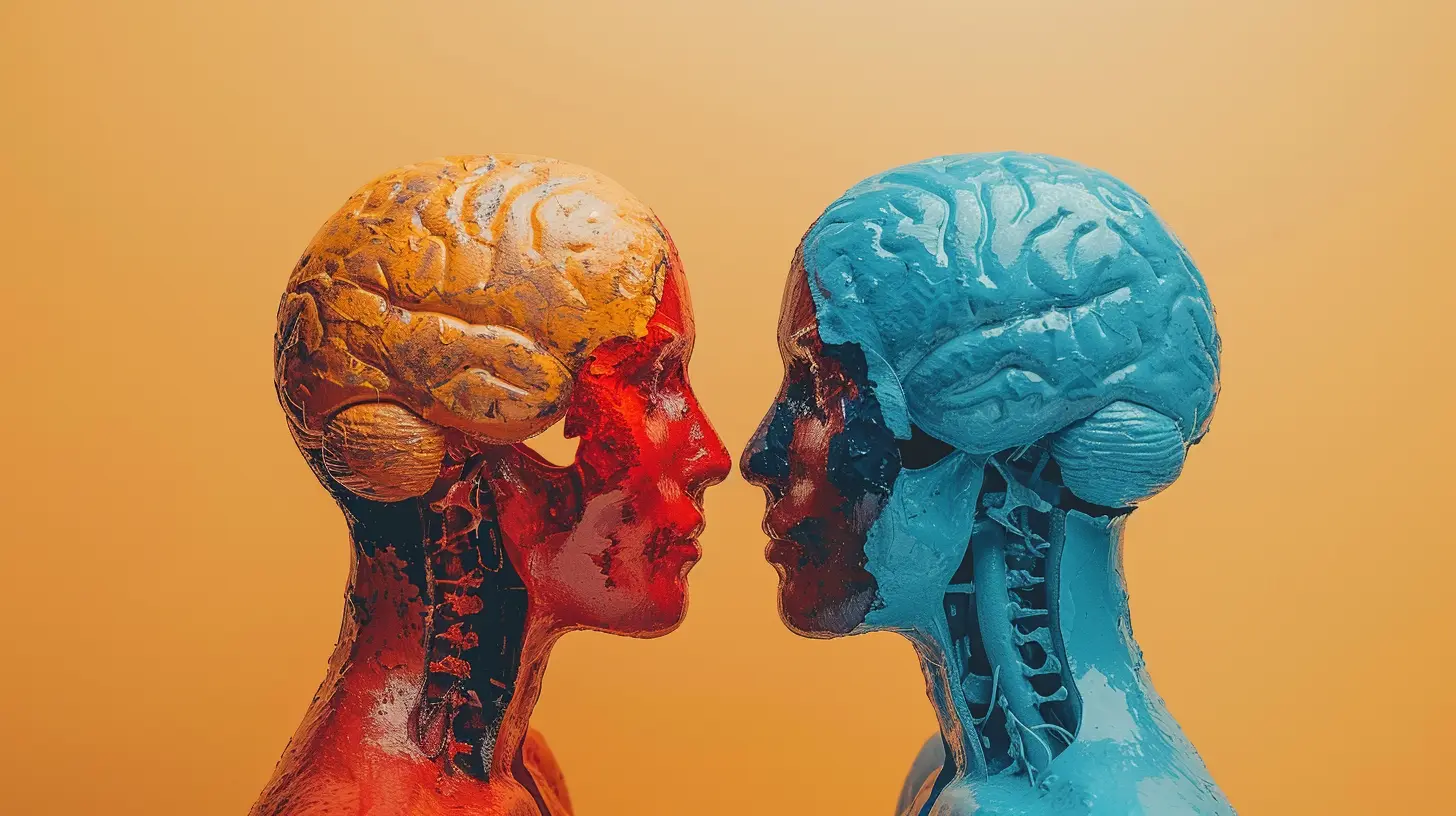Avoidant Attachment: How Emotional Distance Impacts Connections
16 December 2024
Have you ever found yourself in a relationship where one person seems to keep pulling away, even if things are going well? It feels like you’re constantly trying to get closer, but they put up an emotional wall. This kind of dynamic can be frustrating, confusing, and hurtful. But believe it or not, this might not be just a personality quirk—it could be something rooted in avoidant attachment.
Avoidant attachment is one of the four main attachment styles, and it plays a significant role in how people form emotional bonds with others. In this article, we’ll dive into what avoidant attachment is, how it manifests in relationships, and what you can do if you or someone you care about exhibits this attachment style. By understanding the emotional distance caused by avoidant attachment, you can take steps toward healthier relationships and deeper connections.

What Is Avoidant Attachment?
Avoidant attachment is a type of insecure attachment style that typically develops in childhood based on early experiences with caregivers. In essence, an avoidant attachment style means that someone has learned to rely on themselves rather than others for emotional support. This can stem from caregivers being emotionally unavailable, dismissive, or not responsive to the child’s needs.People with avoidant attachment often grow into adults who value independence and self-sufficiency above relationships. They may feel uncomfortable with closeness and intimacy, leading to emotional distance in their personal connections. On the surface, they might seem calm, cool, and collected. But underneath that exterior is a person who finds it difficult to trust others or lean on them for emotional support.
The Four Main Attachment Styles
Before we go any further, let's briefly touch on the four main attachment styles:1. Secure Attachment: People with this style feel comfortable with intimacy and independence. They have healthy relationships because they trust their partners and can rely on them without feeling overwhelmed.
2. Anxious Attachment: These individuals crave closeness but often worry about being abandoned or not being loved enough. They might seem "clingy" in relationships because they fear their partner will leave.
3. Avoidant Attachment: Avoidant individuals value independence and often avoid closeness. They may feel that relying on others is a sign of weakness and prefer to keep their emotions to themselves.
4. Disorganized Attachment: This attachment style is a mix of anxious and avoidant tendencies. People with this style may fear intimacy but also desperately want connection, leading to confusing and erratic behaviors in relationships.
Having an avoidant attachment style can make forming and maintaining deep emotional connections challenging. But why does this happen?

How Does Avoidant Attachment Develop?
Avoidant attachment usually stems from early childhood experiences. If a child’s primary caregiver is emotionally distant, dismissive, or unresponsive, the child may learn that expressing emotions or seeking comfort isn’t effective. Over time, they begin to suppress their emotional needs and learn to depend on themselves.For example, imagine a child who falls and scrapes their knee. If the caregiver brushes it off with a quick "You’re fine, get up," instead of offering comfort, the child may start to believe that showing vulnerability is pointless. As this pattern repeats, the child internalizes the idea that it’s safer to rely solely on themselves rather than seeking emotional support from others.
As adults, these individuals often struggle with intimacy, trust, and vulnerability. They may appear aloof or distant, not because they don’t care, but because they’ve learned that keeping emotional distance is the best way to protect themselves from being hurt.

Signs of Avoidant Attachment in Adults
If you’re wondering whether you or someone you know has an avoidant attachment style, there are a few telltale signs:1. Difficulty With Emotional Intimacy
One of the most common traits of avoidant attachment is a discomfort with emotional closeness. Avoidant individuals often keep their partners at arm’s length, both emotionally and physically. They may avoid deep conversations or steer clear of topics that require vulnerability.2. Preference for Independence
People with avoidant attachment highly value their independence and often resist relying on others. They may feel suffocated by too much closeness and prefer to handle things on their own. This can make them seem detached or uninterested in their partner’s needs.3. Avoiding Commitment
Avoidant individuals often struggle with commitment. They may fear that being in a committed relationship will compromise their independence or make them vulnerable to emotional pain. This can lead to a cycle of short-term relationships or avoiding relationships altogether.4. Suppressing Emotions
If you’ve ever heard someone say they "don’t do emotions," that can be a sign of an avoidant attachment style. These individuals often suppress or ignore their emotions, believing that showing vulnerability is a weakness. They might minimize their feelings or avoid discussing them with others.5. Fear of Dependency
Avoidant individuals often fear becoming too dependent on others. They may see emotional dependence as a sign of weakness or vulnerability. As a result, they might pull away when their partner seeks emotional support or closeness, creating emotional distance in the relationship.
Impact on Relationships
Avoidant attachment can significantly impact relationships, often creating a push-pull dynamic. While one partner may crave closeness and intimacy, the avoidant partner may pull away, feeling overwhelmed by the emotional demands. This can lead to frustration, misunderstandings, and even breakups.1. Emotional Distance
One of the biggest challenges in relationships with avoidant individuals is the emotional distance they create. They may seem emotionally unavailable or uninterested in their partner’s feelings. This can leave their partner feeling neglected, unloved, or like they’re constantly chasing after intimacy.2. Communication Issues
Avoidant individuals may struggle with communicating their emotions, making it difficult to resolve conflicts in relationships. They might shut down during arguments, avoid discussing their feelings, or withdraw when things get emotionally intense.3. Fear of Vulnerability
Avoidant individuals often fear vulnerability, which can prevent them from fully opening up in relationships. They may keep their partner at arm’s length, refusing to share their innermost thoughts and feelings. This lack of vulnerability can hinder the development of a deep emotional connection.4. Struggles with Long-Term Commitment
Avoidant individuals may resist long-term commitment because they fear losing their independence or becoming emotionally dependent on their partner. They might avoid taking the next step in a relationship, such as moving in together, getting married, or having children, because they fear being "trapped" in emotional closeness.How to Navigate a Relationship with Avoidant Attachment
If you’re in a relationship with someone who has an avoidant attachment style, it can be challenging, but it’s not impossible to create a healthy connection. Here are some tips on how to navigate the relationship:1. Be Patient
It’s important to remember that avoidant attachment isn’t a conscious choice. Avoidant individuals have developed these behaviors as a way to protect themselves from emotional pain. Be patient with your partner and understand that change may take time.2. Encourage Open Communication
Encourage your partner to communicate their feelings and needs, even if it feels uncomfortable for them. Let them know that it’s safe to be vulnerable with you and that you’re willing to listen without judgment.3. Respect Their Need for Space
Avoidant individuals often need space to process their emotions and feel comfortable. Respect their need for independence and avoid pushing them into situations that make them feel overwhelmed or suffocated.4. Focus on Building Trust
Trust is crucial in relationships with avoidant individuals. Show your partner that you’re reliable, supportive, and not going to abandon them, even when they pull away. Over time, this can help them feel more comfortable with emotional intimacy.5. Encourage Therapy
Avoidant attachment can be challenging to overcome, but therapy can be incredibly helpful. A therapist can help your partner understand their attachment style and work through the underlying issues that contribute to their emotional distance.
Can Avoidant Attachment Be Changed?
The good news is that avoidant attachment isn’t set in stone. With self-awareness, therapy, and a willingness to change, individuals with avoidant attachment can develop healthier attachment patterns.Therapy, particularly forms like cognitive-behavioral therapy (CBT) or attachment-based therapy, can help individuals explore the root causes of their avoidant behaviors and develop new ways of relating to others. By learning to trust and rely on others, they can begin to form deeper, more meaningful connections.
Conclusion
Avoidant attachment can create emotional distance in relationships, making it difficult to form deep, intimate connections. While avoidant individuals may seem aloof or uninterested, their behaviors often stem from a fear of vulnerability and a need to protect themselves from emotional pain.Understanding the signs of avoidant attachment and how it impacts relationships is the first step toward building healthier connections. Whether you’re the one with avoidant tendencies or you’re in a relationship with someone who is, patience, communication, and a focus on building trust can help bridge the emotional gap.
Remember, attachment styles can change. With awareness and effort, it’s possible to move toward more secure, fulfilling relationships.
all images in this post were generated using AI tools
Category:
Attachment TheoryAuthor:

Paulina Sanders
Discussion
rate this article
12 comments
Kate McTiernan
This article brilliantly highlights the profound effects of avoidant attachment on relationships. Understanding emotional distance is crucial for fostering genuine connections. By recognizing these patterns, individuals can take meaningful steps toward emotional intimacy. It’s time to address avoidant behaviors and cultivate healthier, more fulfilling relationships. Insightful read!
February 12, 2025 at 3:21 PM

Paulina Sanders
Thank you for your thoughtful comment! I'm glad you found the article insightful and agree on the importance of addressing avoidant attachment for healthier relationships.
Kendall McCall
Thank you for this insightful article. It’s important to recognize how avoidant attachment can shape our relationships. Your explanations shed light on a complex topic, making it easier to understand the struggles many face. I appreciate the practical tips for fostering deeper connections.
February 1, 2025 at 5:37 AM

Paulina Sanders
Thank you for your kind words! I'm glad you found the article helpful in understanding avoidant attachment and its impact on relationships. Your feedback means a lot!
Avianna Hall
Insightful read on emotional barriers!
January 28, 2025 at 4:56 PM

Paulina Sanders
Thank you! I'm glad you found it insightful!
Rook Walker
Great article! Understanding avoidant attachment is crucial for fostering deeper connections. Your insights provide valuable guidance for those seeking to bridge emotional distance and build healthier relationships. Thank you for sharing!
January 25, 2025 at 5:03 AM

Paulina Sanders
Thank you for your kind words! I’m glad you found the insights helpful for fostering deeper connections.
Isabelle Palmer
Emotional distance in avoidant attachment is like a Wi-Fi signal on a bad day—everyone's trying to connect, but the buffering just leaves us more frustrated!
January 20, 2025 at 4:05 PM

Paulina Sanders
That's a great analogy! Emotional distance in avoidant attachment can indeed create frustrating disconnects, making it challenging to form deep connections. Thank you for sharing!
Odessa McCune
Great insights! Awareness fosters healthier connections!
January 14, 2025 at 3:59 PM

Paulina Sanders
Thank you! I'm glad you found it insightful. Awareness truly is key to building healthier relationships.
Lira McInnes
This article sheds light on avoidant attachment in such an intriguing way! It's fascinating how emotional distance shapes our relationships. I’m eager to explore practical strategies for bridging these gaps in connectivity and enhancing intimacy.
January 4, 2025 at 4:54 AM

Paulina Sanders
Thank you for your thoughtful comment! I'm glad you found the article intriguing. Exploring practical strategies for overcoming avoidant attachment is essential, and I appreciate your eagerness to enhance intimacy in relationships.
Jenna McCabe
This article provides valuable insights into avoidant attachment and its effects on relationships. Understanding these dynamics is the first step toward healing and building stronger connections. Your openness to explore this topic shows great self-awareness, and I encourage you to keep seeking knowledge and growth. You're not alone on this journey!
December 30, 2024 at 4:18 AM

Paulina Sanders
Thank you for your thoughtful comment! I appreciate your encouragement and agree that understanding avoidant attachment is crucial for healthier connections.
Violet Hamilton
Understanding avoidant attachment fosters deeper, healthier connections.
December 25, 2024 at 4:23 AM

Paulina Sanders
Absolutely! Recognizing avoidant attachment can help us address emotional distance and promote healthier, more fulfilling connections.
Arianth McCallum
This article insightfully explores how avoidant attachment shapes relationships, highlighting the importance of understanding emotional distance for healthier connections and personal growth.
December 19, 2024 at 6:04 AM

Paulina Sanders
Thank you for your thoughtful comment! I'm glad you found the exploration of avoidant attachment and emotional distance insightful. Understanding these dynamics is crucial for fostering healthier connections.
Spike McAndrews
Embracing vulnerability can transform our connections, fostering deeper relationships and greater emotional intimacy. Keep growing!
December 18, 2024 at 6:00 PM

Paulina Sanders
Thank you for your insight! Embracing vulnerability is indeed essential for deepening relationships, especially in the context of avoidant attachment. Let’s keep fostering that emotional intimacy!
Mallory Riggs
Can love thrive in shadows, or is distance the thief?
December 16, 2024 at 5:01 PM

Paulina Sanders
Love can thrive in shadows if both partners nurture their bond, but emotional distance can indeed become a thief if it leads to disengagement.
MORE POSTS

The Science Behind Psychotic Episodes

Trauma and Memory: Why We Forget and How to Remember Safely

Emotional Numbness: When Trauma Leaves You Feeling Empty

How to Practice Self-Love in a Society That Glorifies Hustle

Recognizing Trauma Triggers and Learning to Manage Them

The Role of Self-Esteem in Achieving Emotional Resilience

Understanding Borderline Personality Disorder: A Comprehensive Guide

Building Resilience in Children: A Guide for Parents